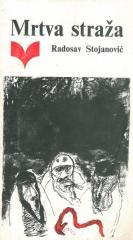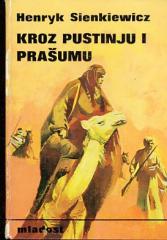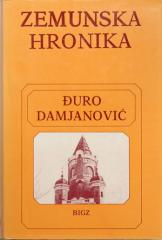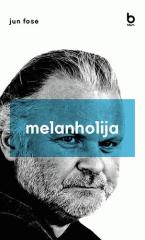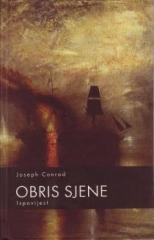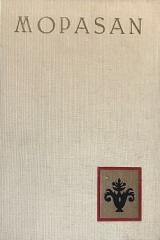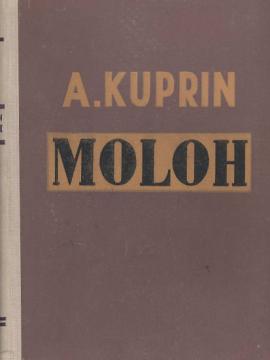
Moloh
Ovaj roman oštro kritizira brzo rastući ruski kapitalizam i odražava rastuće industrijske nemire u zemlji, te se smatra Kuprinovim prvijencem.
Radnja prati inženjera Andreja Bobrova, koji radi za nemilosrdno kapitalističko industrijsko poduzeće i sve više osjeća nelagodu zbog onoga što se događa oko njega. Nakon što izgubi Ninu, ženu koju voli, u ruke nemoralnog industrijalca Kvašnina, vlasnika tog poduzeća, doživljava nervni slom i ostaje slomljen čovjek, sklon frenetičnim i jalovim raspravama sa svojim vlastitim “dvojnikom”. Kraj priče naznačuje izbijanje radničkog ustanka.
Neki od ključnih likova u romanu su:
- Andrey Bobrov: Osjetljiv i društveno svjestan čovjek koji prepoznaje tvornicu u kojoj radi kao nezasitog Moloha, bezobzirnog boga Amonita za kojeg su djeca bila “prošla kroz vatru” u ritualnom žrtvovanju (2. Kraljevima 23:10).
- Kvashnin: Vlasnik poduzeća, “pohlepan, razvratan, monstruozno debeo”, kojeg Bobrov vidi kao personifikaciju “industrijske nemoralnosti”.
- Svezhevsky: Odvratni karijerist, “moderni Uriah Heep” (Nicholas Luker).
- Zinenko: Čovjek zadužen za skladišta u tvornici; ulaguje svojim nadređenima, ogovara o kolegama i tiranizira svoje podređene.
- Nina: Zinenkova kći, prekrasna mlada žena u koju se Bobrov zaljubljuje i koja je više impresionirana Kvashninovim bogatstvom. Trebala bi se udati za Svezhevskog kako bi postala Kvashninova ljubavnica pod plaštom uglednosti.
- Goldberg: Liječnik u tvornici i Bobrov jedini prijatelj.
- Andrea: Dobro obrazovani i iznimno inteligentni belgijski inženjer. Roman “Moloch” duboko je ukorijenjen u društvene i ekonomske probleme 1890-ih godina, odražavajući rastuće nemire među novom radničkom klasom. Kuprin je uspješno prenio napetost i konflikte tog vremena u svoje djelo.
Iako je roman napisan prije više od stoljeća, njegova tematika i dalje ima relevantnost u suvremenom kontekstu.
Jedan primjerak je u ponudi
- Tragovi patine
